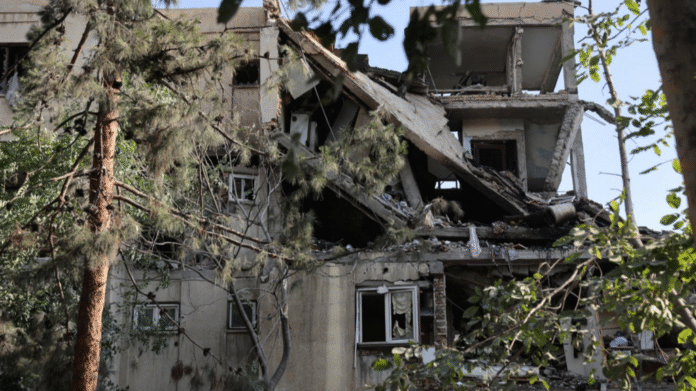70 Dead, Dozens of Sites Hit: Iran Vows ‘Severe Punishment’ as Conflict Threatens to Expand
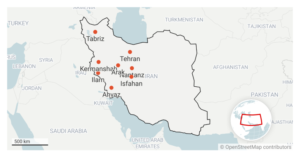
Qalam Times News Network
By Special Correspondent | June 13, 2025
In a dramatic escalation of hostilities, Israel launched multiple airstrikes across Iran on Friday, targeting critical nuclear facilities, high-ranking military officials, and ballistic missile infrastructure. The operation, described by Israeli leadership as a “preemptive measure to safeguard national security,” has resulted in significant casualties and drawn sharp global reactions amid fears of a broader regional conflict.
Initial strikes were confirmed early Friday morning in and around Tehran, followed by further reports of explosions in Tabriz, Natanz, Isfahan, Arak, and Kermanshah. According to the semi-official Iranian Fars News Agency, at least 70 individuals were killed, and over 320 sustained injuries in what is being termed the most severe military confrontation between the two nations in recent memory.
Iranian Supreme Leader Ayatollah Ali Khamenei condemned the attacks as a “bloody crime,” warning that Israel will face a “bitter and painful” retribution. In a strongly worded statement, he pledged that Iran’s armed forces would not allow the strike to go unanswered.
Israeli Prime Minister Benjamin Netanyahu, in a pre-recorded address, said the air raids were meticulously planned to disable Iran’s uranium enrichment program and missile production capabilities. He claimed that vital infrastructure at the Natanz nuclear site—one of the focal points of the operation—was destroyed, including underground centrifuge halls and electrical systems essential to Iran’s nuclear development.
Social media posts from Tehran and other affected cities displayed extensive structural damage, including residential buildings. In Tabriz, blasts near a nuclear research facility and military bases were reported, while in Kermanshah, an underground missile depot near the Iraqi border was allegedly obliterated.
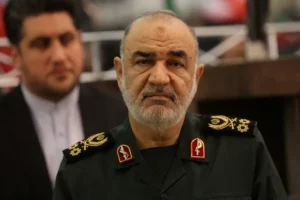
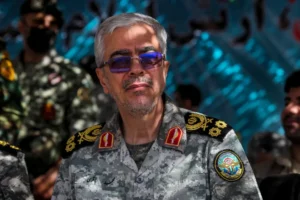
The Iranian Atomic Energy Organization confirmed that radioactive leakage at Natanz was contained and no civilian casualties occurred at that specific site. However, military losses were substantial.
Among those reported killed were IRGC Commander-in-Chief Hossein Salami and Chief of Staff of the Iranian military, Mohammad Bagheri. Khamenei’s senior advisor, Ali Shamkhani, was said to be in critical condition. Also killed were Major-General Gholamali Rashid of the Khatam al-Anbiya HQ and two leading nuclear scientists: Fereydoon Abbasi, former head of the Atomic Energy Organization, and Mohammad Tehranchi, a prominent academic figure and nuclear physicist.
Iran’s armed forces spokesperson, Abolfazl Shekarchi, declared that Israel would “pay dearly” for its aggression. “This reckless attack not only violated our sovereignty but brought war into civilian spaces,” he said.
In Israel, military chief Eyal Zamir defended the strikes, calling them a “defensive necessity” to thwart Iran’s nuclear ambitions. “We have reached the point of no return,” he said, praising the Israeli Air Force’s precision and effectiveness in degrading Iran’s missile capabilities.
Reactions from the international community have been swift. United Nations Secretary-General António Guterres urged “maximum restraint” to prevent a deeper descent into violence. “Targeting nuclear facilities while diplomatic negotiations are ongoing is particularly alarming,” said UN Deputy Spokesperson Farhan Haq.
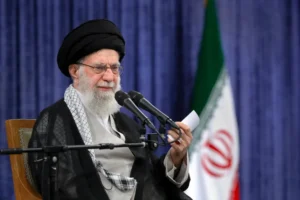
Oman, currently acting as a mediator in the Iran–US nuclear negotiations, strongly condemned Israel’s actions, calling them a “dangerous and unjustified escalation.” The Omani foreign ministry warned of long-term repercussions on regional peace and urged the global community to act decisively to stop further conflict.
In the United States, former President Donald Trump, speaking to Fox News, distanced Washington from the Israeli offensive. “We had no part in this operation,” he stated, while reaffirming that the US would stand by Israel if attacked. Trump also emphasized his continued goal of preventing Iran from acquiring a nuclear weapon.
US Secretary of State Marco Rubio reiterated that American forces in the region remain on high alert and that any Iranian move against US personnel would be “met with a decisive response.” Meanwhile, Democratic Senator Chris Murphy criticized the strikes, suggesting they were intended to derail the fragile diplomatic process with Iran.
Rafael Grossi, Director-General of the International Atomic Energy Agency (IAEA), confirmed that the Natanz facility was among the sites struck. The agency remains in contact with Iranian officials and is monitoring radiation levels through on-ground inspectors.
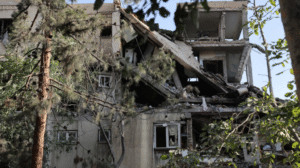
As Friday ended, both nations stood firm on their stances, with fears mounting that this could be the beginning of a far larger confrontation—one with consequences that could engulf the entire Middle East.
© Qalam Times News Network | All rights reserved

